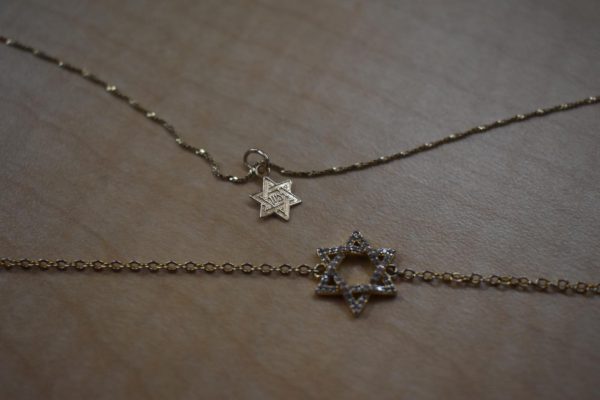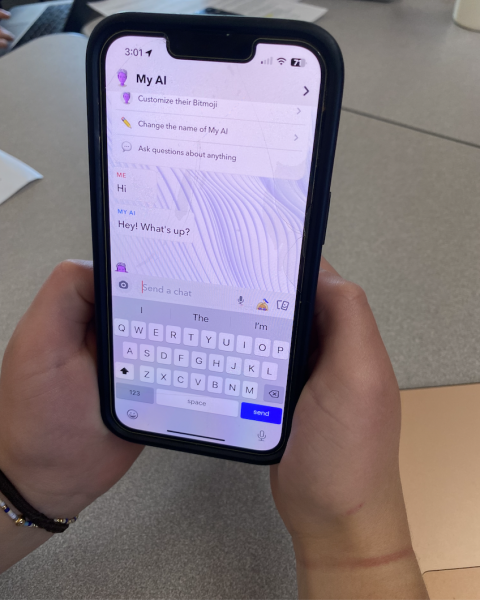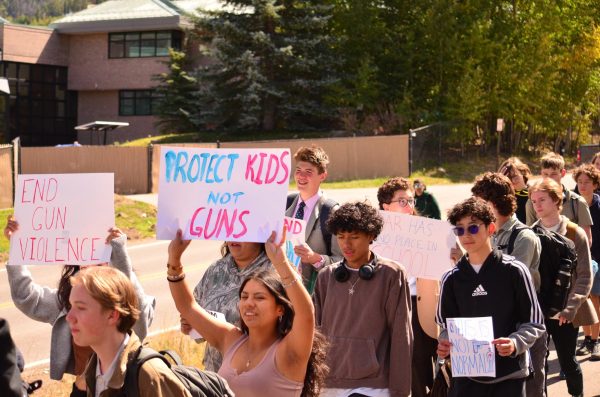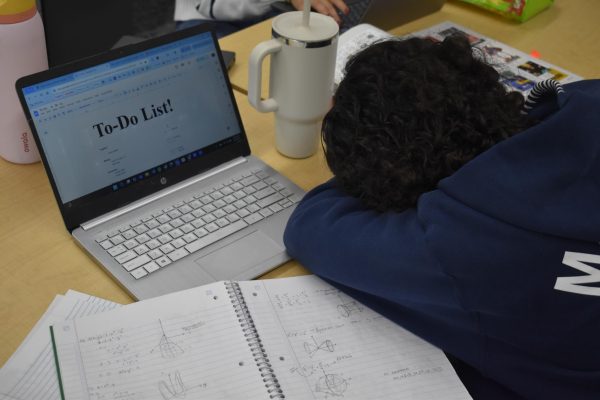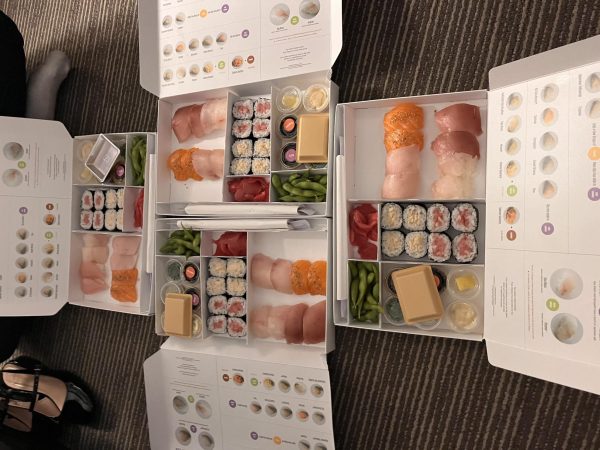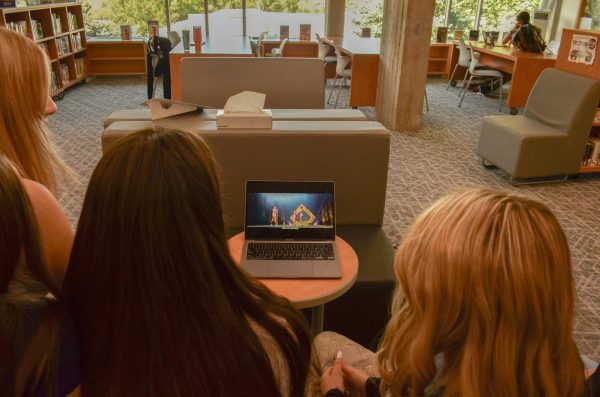Privilege and performative activism: the intricticies of being a good ally
Photo courtesy of the AHS Silver Queen
AHS students gathered at Paepcke park in 2019 after school walkout to protest climate change.
Performative activism is defined as “activism done to increase one’s social capital rather than because of one’s devotion to a cause.” According to Wikipedia, “it is often associated with surface-level activism, referred to as slacktivism.”
In today’s society, there is a high amount of social pressure for youth to be activists. Social media creates a lot of this social pressure; if you don’t actively post about current events, it appears as if you don’t care. A prime example of this was over the summer; a trend occurred where people posted black photos with the intention of appearing like an activist, but these posts actually blocked out valuable information regarding the BLM movement. Millions of people acted on social pressure without thinking it through, or really caring about the subject. Most people never posted about the movement again.
Additionally, over the summer many famous TikTokers, including the very popular Charlie D’Amelio, changed their Tik Tok profile picture to the Black Lives Matter logo. Changing a profile picture does nothing to benefit a movement. Showing one’s support for the movement is beneficial, especially if they are an influential person, but then doing nothing beyond that makes it performative activism.
In 2019 students walked out of class to give speeches and supposedly show support for climate reform. This walkout was a great show of support, but it verged on performative activism. While the issue of climate change impacts the students of Aspen greatly and they are sincere about it, nothing came of the walkout. As soon as students came back to the school, the trash cans were filled with signs saying “Save the planet.” No one used this momentum to start an initiative to make the school or town greener. No one, as far as I know, made any changes to their lifestyle in response. Most students said they cared a lot about the movement, posted about it on social media, yet never took any action.
Performative activism often goes hand in hand with white guilt, which is remorse or shame felt by a white person with respect to racial inequality and injustice according to the Oxford dictionary. The social pressure to be an activist combined with white guilt creates an atmosphere of people feeling the NEED to let people know they support a subject to convey a message about themselves, even if they are not actively doing anything to make change.
One BLM protest I went to in Aspen was a protest organized by students, at which police walked with the predominantly white mostly female student protestors. To an outsider’s eye, this probably looked like performative activism; police brutality based on race was not impacting this group directly. The protestors were predominantly allies of the BLM movement.
Gen Z wants to help and make an impact, but if you are not oppressed in any way, privilege guilt can often overwhelm a message. To a certain extent, an ally will always be somewhat insincere. An ally can feel compassion for an oppressed group and believe that they are being wronged, but an ally will never fully know how it feels to be in an oppressed group.
The social pressure to be an activist is so overwhelming that allies of movements often don’t know how to help. They want to help make change but they don’t want to take attention away from members of an oppressed community or to seem insincere. In many ways, it seems like an ally of a movement cannot do the right thing when trying to be an activist. It is a balance hard to reach to be a good ally to a movement.
However, there are ways to be a good ally: Amplify the voices of the oppressed (instead of speaking for the oppressed use your privilege to share their voice), educate yourself on the matter, own your privilege, defend the oppressed, be apart of the discussion, and make change using your privilege (bring diversity, influence legislators/ policy makers, and donate money and time to the cause).

Tessa Guthrie is a senior at AHS. She is currently one of the Editors-in-Chief. This is her fourth year writing for the Skier Scribbler. She loves to ski,...
























